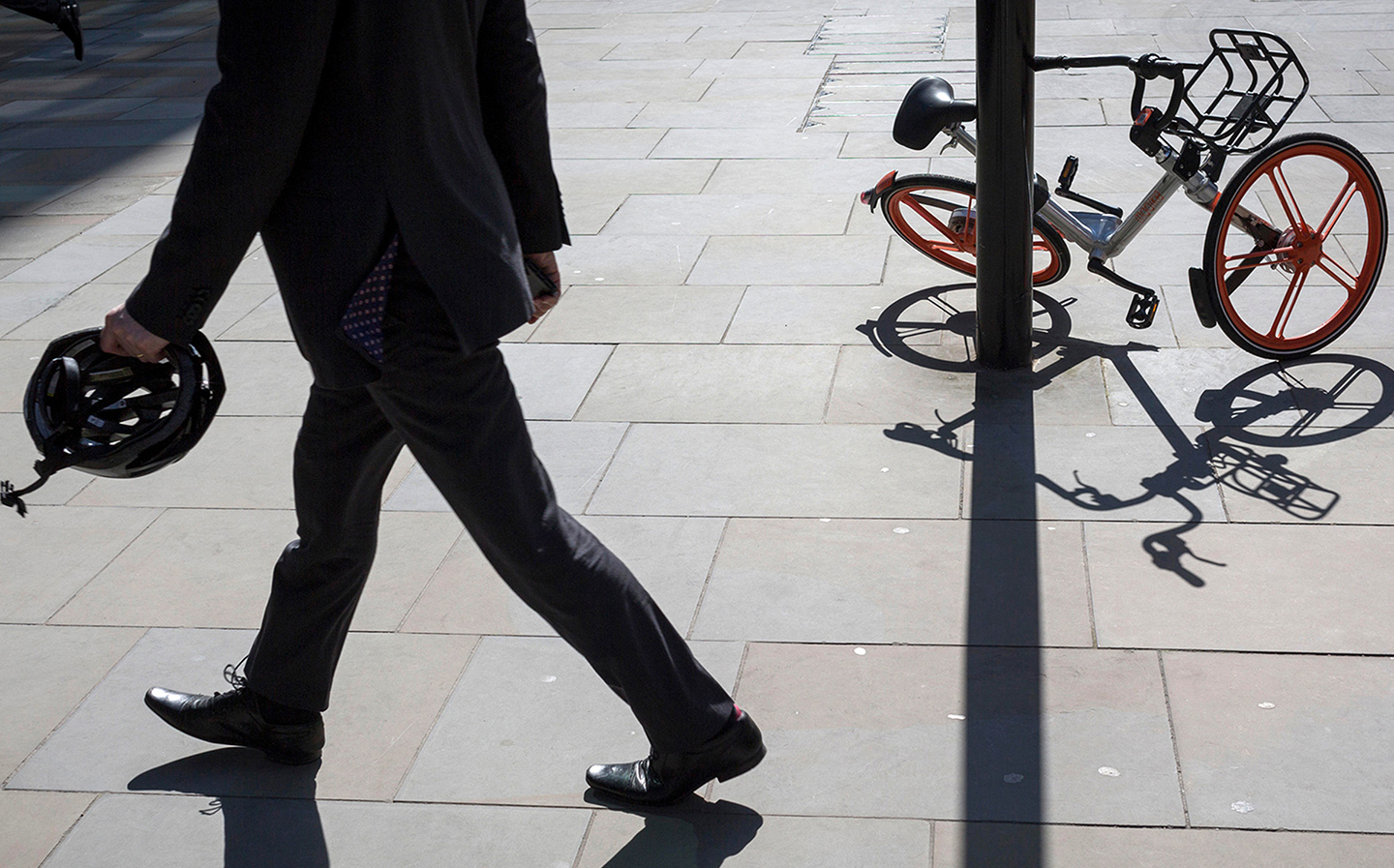Tech: Spoke in the wheel of the rental revolution
“Dockless” bicycles are changing our cities, but hire schemes have yet to solve the issues of oversupply and poor parking etiquette
IMAGINE no possessions. John Lennon’s rallying call to live a simpler life has become a tech start-up mantra. Why own a DVD when you can watch Netflix? Why buy music when you can stream it from Spotify?
The rise of the rental lifestyle reflects deeper trends in our society: millennials are less hung up on physical stuff, whether by choice or economic necessity. Are the grand promises of renting overblown, though? Londoners will be familiar with “Boris bikes” — bicycles for hire that are “docked” at branded stands across the capital — but private companies have gone further.
Ofo and Mobike, which were launched in Beijing in 2014 and 2015 respectively, came to Britain last year and offer dockless bikes that you find and hire via your smartphone; when you’re done, you simply lock them and leave them. They aim to be cheap (from 50p for 20 minutes of riding time) and easily accessible. I logged on to the Mobike app and found two within 10 minutes’ walk of my house in south London, and three near where I work in the City. Ofo claims it has 10m bikes worldwide.
The ubiquity of smartphones has made such schemes possible. GPS trackers locate nearby bikes; users “unlock” them by scanning a QR code with their camera; and payment is taken through the app. All this would have been unthinkable a decade ago.
So much for the upside. While both apps get good reviews, there are persistent complaints about “phantom bikes” that show up on your screen but are impossible to find. The theory is that people are keeping them, locked, in their back gardens. Several cities have complained of bikes being left up trees or blocking pavements, or turning up cannibalised on towpaths. Sometimes the sheer numbers are overwhelming: Beijing alone has 2.4m shareable bikes and has banned any new ones. (Mobike tries to discourage bad behaviour with a £15 deposit and a user rating system.)
So is this the future? Not if they are deemed to be a nuisance — and not if there is a consumer backlash. As with vinyl records, we may yet rediscover the pleasures of ownership.
Helen Lewis is deputy editor of the New Statesman.





